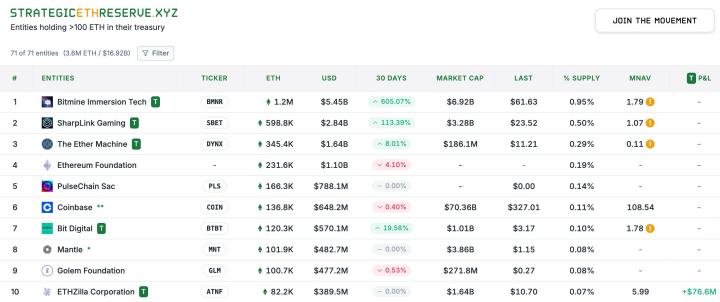
Just last Friday (May 30), after leaving the "Government Efficiency Department" (DOGE) of the Trump administration, Musk and Donald Trump, once "allies," seem to have quickly moved towards open confrontation. First, Trump revoked the nomination of Musk's close ally Jared Isaacman as NASA director. Subsequently, Musk directly blasted Trump's proposed "One Big Beautiful Bill Act" on the X platform (formerly Twitter), calling it "disgusting," which sparked a huge wave of reaction in American political circles and public opinion.
"I Really Can't Stand It Anymore!"
On June 3, Musk went all out on the X platform. Although he did not directly use Trump's "Big Beautiful Bill" term, the meaning was very clear:

"Sorry, I really can't stand it anymore," Musk wrote bluntly. "This congressional spending bill, full of personal interests and ridiculously absurd, is a disgusting disaster. Those who vote to support it should be ashamed, and you know you're wrong."
He went on to warn that this bill would push the already massive US fiscal deficit to **$2.5 trillion** (!!!), "saddling the American people with a heavy and unsustainable debt."
Why is this statement so attention-grabbing? Because just five days ago, Musk officially stepped down from his position as a "Special Government Employee" in the Trump administration - head of the "Government Efficiency Department" (DOGE). It is said that Trump himself even personally presented him with an honorary "golden key" in the White House Oval Office. This dramatic shift from "breaking up" to "tearing into each other" suggests that their relationship is not as friendly as the outside world speculated.
Serious Internal Differences
Trump's "One Big Beautiful Bill" is actually a comprehensive legislative plan covering government budget, tax system, debt management, and environmental policies. This bill not only provides funding guarantees for the government's operations in the coming years but is also a key tool for Trump to advance his core policy agenda if re-elected. The bill promises to extend the tax cuts passed during Trump's first term that are about to expire, inject funds into defense spending, and provide funding for large-scale deportation of undocumented immigrants.
Additionally, it proposes raising the government borrowing limit (debt ceiling) to $4 trillion.

The plan faced strong opposition from different factions within the party during the House review, and the Senate has now begun deliberation, with internal divisions emerging in the Republican-controlled Senate. Musk's remarks reflect broader tensions within the Republican Party regarding this plan.
The Republicans hold 53 seats out of 100 member institutions, but both fiscal hawks and more moderate members have not yet indicated willingness to support the bill. Kentucky Republican Senator Rand Paul stated in the past few days that he would not support the bill if it includes provisions to raise the debt ceiling, telling CBS News: "Once Republicans vote for this bill, they will own the debt."
Musk's remarks have encouraged fiscal hawks like Kentucky Republican Senator Rand Paul and Kentucky Republican Representative Thomas Massie, who are among the few Republicans consistently voting against such measures. "I think he makes a reasonable point," Republican Senator Kevin Cramer said, adding that Musk did not fully acknowledge the "growth" from tax cuts.
Texas Republican Senator Ted Cruz told NBC News: "The Senate should significantly improve this bill, and I hope and believe we can do that. There's no doubt we need to further cut spending." "We certainly respect everything Elon has done for DOGE. But on this issue, we have differences of opinion," Senate Majority Leader and Republican John Thune told CNBC, "He has the right to express his view, but we will push forward."
Facing Musk's fierce criticism, White House Press Secretary Karoline Leavitt tried to downplay his remarks at a television news conference. She said: "The President has long known Musk's position on this bill, and this has not changed his view. It's a great, beautiful bill, and he will stand firm."
Bleak Prospects for Bill Passage
It is yet to be seen whether Musk's public criticism reflects a shift in his political stance. After all, he invested nearly $290 million supporting Trump and Republican candidates in the last election cycle. This fierce statement may just be a carefully calculated "public pressure" because he is well aware of the potential impact of this bill on companies like Tesla in the new energy sector.
Currently, the House has passed the bill by a slim margin last month, and the Senate is conducting revision negotiations. Trump says he hopes to sign the final version before Independence Day on July 4. It can be foreseen that as the "Beautiful Bill" is reviewed in the Senate, the fiscal storm in American politics will further escalate in the coming weeks. The open confrontation between former allies Musk and Trump will undoubtedly add more uncertainty to this storm. Meanwhile, Musk's public image has been affected - Tesla, his most consumer-centric company, has seen both word-of-mouth and sales decline, with Tesla's stock price dropping about 13% this year.
Welcome to join BlockBeats official community:
Telegram Subscription Group: https://t.me/theblockbeats
Telegram Discussion Group: https://t.me/BlockBeats_App
Twitter Official Account: https://twitter.com/BlockBeatsAsia







